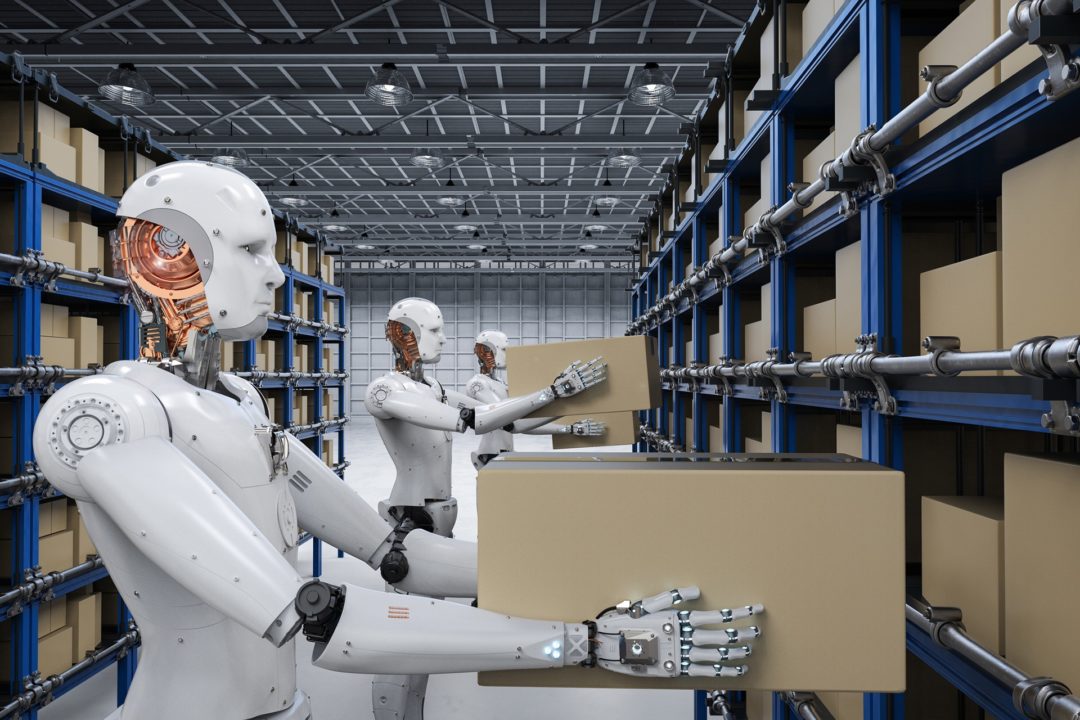
Are the Robots Coming?

But instead of letting workers go, CaliBurger lets “Flippy,” the burger-flipping robot, do the grunt work while employees focus on keeping dining rooms clean and refilling customer drinks. The company believes that automating the dirtiest and most difficult tasks will make recruiting and retaining workers easier.
Since 2013, foodservice jobs have increased from 10.3 million to 11.9 million, adding 1.6 million positions, an all-time high. But foodservice unemployment is 6%, down from 7% in 2000. If machines were replacing workers, unemployment percentages would be going up, not down. In fact, quick-service restaurants now average 18.4 workers per unit, up from 17.4 before the great recession of 2007. Turns out, restaurants are staying open longer, have employees delivering more food, and are staffing up to handle increased demand from automated ordering.
To deal with the tight labor market and high turnover, Dunkin’ Donuts U.S. asked employees to identify which mundane tasks made them want to leave, and geared automation around that. For example, workers had to hand-write thousands of expiration labels daily. Dunkin’ installed small printer terminals to print out expiration times.
Wendy’s Co. is automating dishwashing with machines that require pressing one button, with no additional monitoring, replacing the six steps and constant cycle monitoring of the old washers. Rather than letting employees go though, the burger chain is hiring hosts to walk the dining rooms, refill drinks and help customers use the automated order kiosks.
Retaining WorkersGallup, the management consulting and survey company, long ago identified the biggest reasons employees leave their jobs. After having a jerk for a boss, the second-most common trigger is not having the proper tools to do everyday tasks. By asking employees what frustrates them most about their jobs, managers can identify repetitive chores that can be improved with better tools, redesigned to be more efficient, or even eliminated through automation.
Retaining, rather than turning over, workers is smart business. In its most recent quarterly conference call, supermarket chain Kroger CEO, Rodney McMullen, said that recent investments the company has made in its employees, such as raising base wages, has increased retention. “If we can keep that associate for a full year, we’re actually on the positive side of the investment, because we haven’t…had to hire and train and get a new associate up to speed, and that cost is actually more than the dollar-an-hour wage investment,” McMullen reports.
Service or Discount?By the evidence so far, robotics and automation are giving service companies the chance to rethink routine job duties and free up employees to enhance the customer experience. In the race to win customers, it appears service companies that want to deliver a quality experience will use automation to up their service game. It is likely only the most hard-discount, bare bones outfits will use automation to shrink the workforce.JJ
Jay Jacobowitz is president and founder of Retail Insights®, a professional consulting service for natural products retailers established in 1998, and creator of Natural Insights for Well Being®, a holistic consumer marketing service designed especially for independent natural products retailers. With 40 years of wholesale and retail industry experience, Jay has assisted in developing over 1,000 successful natural products retail stores in the U.S. and abroad. Jay is a popular author, educator, and speaker, and is the merchandising editor of WholeFoods Magazine, for which he writes Merchandising Insights and Tip of the Month. Jay also serves the Natural Products Association in several capacities. Jay can be reached at (800)328-0855 or via e-mail at jay@retailinsights.com.
Published in WholeFoods Magazine August 2018

The editorial team at WholeFoods Magazine has decades of experiences reporting on natural products industry news, trends, and more. This national, monthly business-to-business magazine has been published continuously for nearly 40 years (the magazine was founded in 1977, and has been owned by Wainer Finest Communications since 1984). It is the longest-tenured media outlet of its kind in the natural products industry. The editorial focus at WholeFoods Magazine is, and always has been, on informing and educating members of the natural products industry.
The Magazine
Information
About Us
NOTE: WholeFoods Magazine is a business-to-business publication. Information on this site should not be considered medical advice or a way to diagnose or treat any disease or illness. Always seek the advice of a medical professional before making lifestyle changes, including taking a dietary supplement. The opinions expressed by contributors and experts quoted in articles are not necessarily those of the publisher or editors of WholeFoods.







